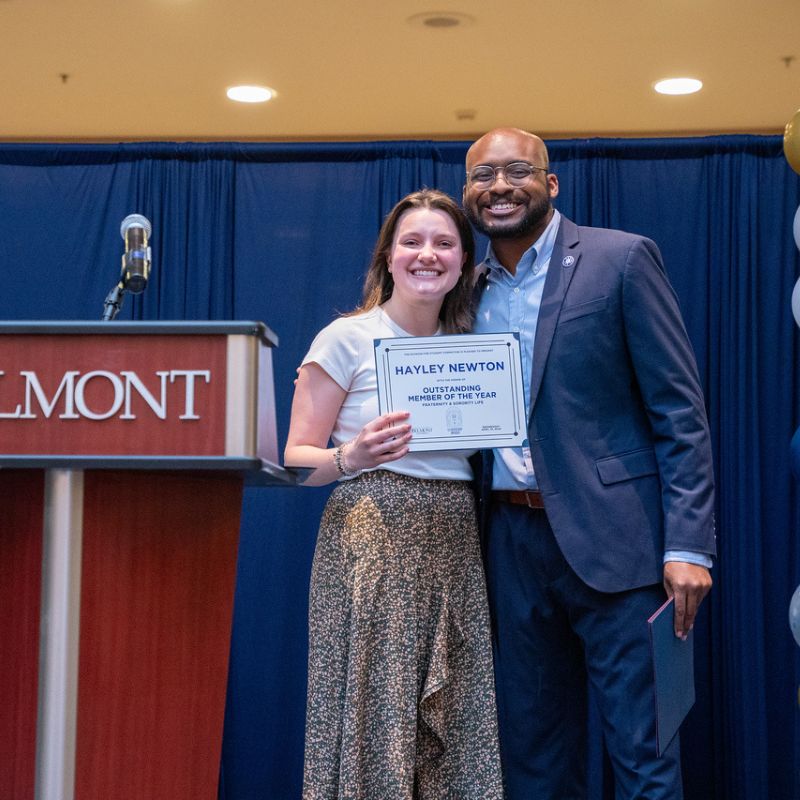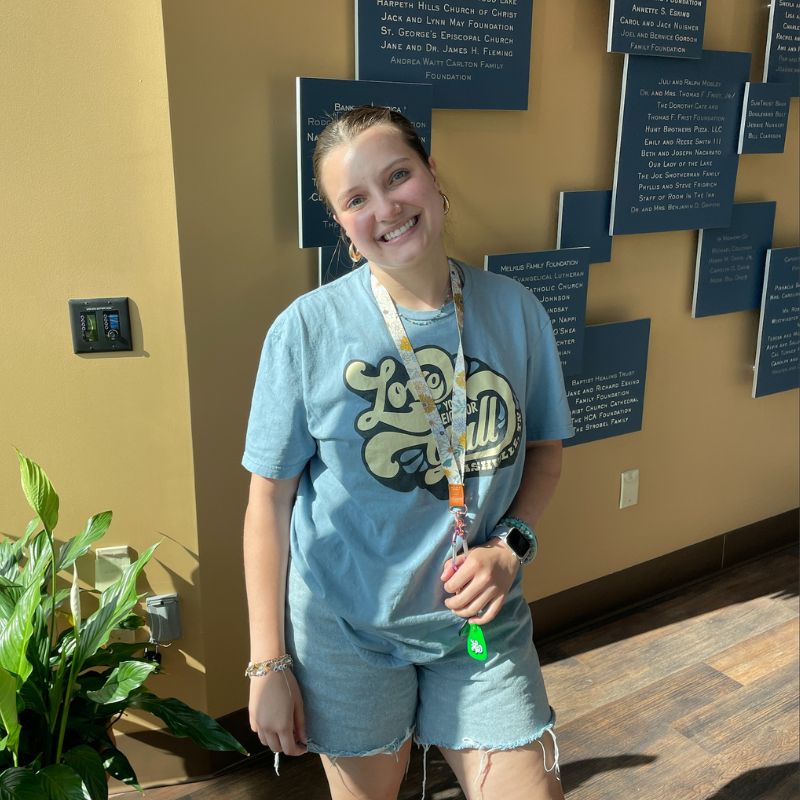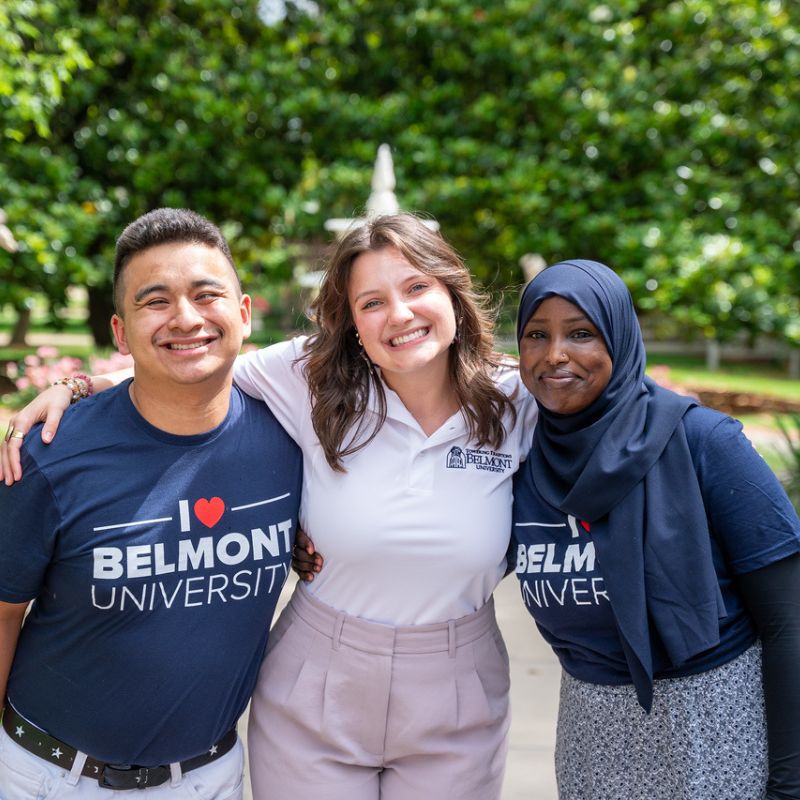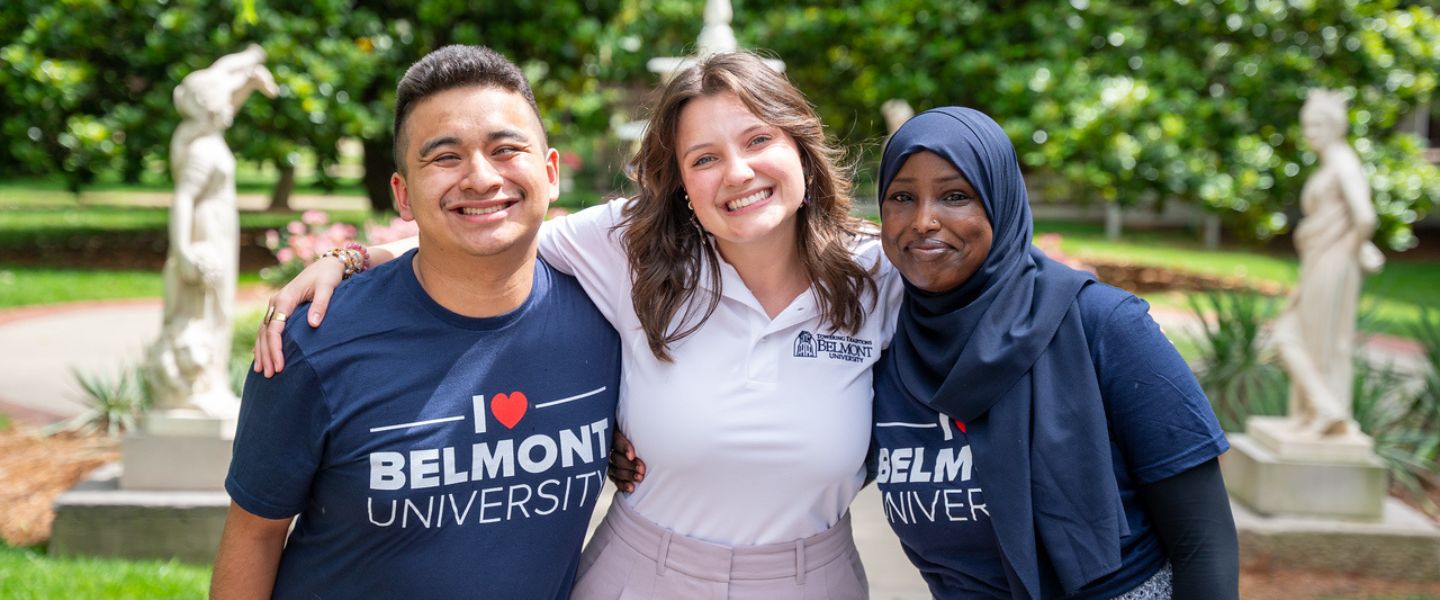How senior Hayley Newton is humanizing and dignifying a forgotten population
“I believe in the power of healing through art, specifically theatre.”
To some, theatre is treated as a side hobby for disinterested high schoolers or a summer outlet to get young kids out of the house. For senior faith and social justice major Hayley Newton, theatre is a gateway to purpose, expression, dignity and humanity.
Just over 22 miles north of Atlanta lies Roswell, Georgia — a city nestled deep within the heart of the southern United States where Newton grew up. She recalls discussions of racial inequality rarely being held outside of her home. Newton, however, grew up in a household that was open to having these challenging dialogues and regularly discussed issues of race, politics and injustice.
These conversations became more widespread after the death of George Floyd during the height of the COVID-19 pandemic. While media coverage and conversation focused on racial division surged to heights not seen in the United States in decades, Newton felt compelled to act rather than just talk.
A high school junior at the time, she took it upon herself to become educated in anti-racism advocacy, critical race theory and other topics that she regularly spoke about with her family but were not part of her school’s curriculum. This period of self-education coincided with her college search where she sought out universities offering programs that aligned with her conviction for social reform.
Though the pandemic forced theatres across the world to close their doors, Newton’s passion for artistic expression never wavered. She knew, somehow, her belief in art as a means of human value would play a crucial role in her future advocative endeavors — she just needed to find a place that showed her how.
Faith and Social Justice at Belmont
During her college search, Newton discovered Belmont's faith and social justice program. While she initially considered political science to pursue her interest in social policy, the faith and social justice seemed a better fit as it allowed her to keep her faith central to her studies while focusing on the more relational aspects of justice.

“People often ask me how faith and social justice go together,” Newton said. “My personal belief is that you cannot have one without the other. Social justice is ingrained within my religion, and I believe my religion calls for social justice.”
During her first semester at Belmont, Newton took a class titled “Art in the Age of Mass Incarceration.” The class served as an honors credit for her participation in Belmont's Global Honors program and discussed topics such as the history of mass incarceration and the school-to-prison pipeline. In addition, Newton got an inside look at how people inside prisons use art to advocate for themselves and how art intertwines with social justice.
Drawing back on her love for theatre and what expressive art meant to her throughout her childhood, Newton instantly related to these efforts. If theatre provided a sense of purpose and meaning for her, how much greater of a difference could it make in the lives of incarcerated populations?
“I don’t pretend to know what it is like to experience what those experiencing homelessness or members of the incarcerated community have gone through, but I know how much of an impact theatre and storytelling made on my childhood,” Newton said. “I want people to experience the pure joy that I felt, and that I feel theatre can bring to anyone.”
She added a communications minor, realizing how crucial communication and expression would be in her pursuits. Newton then began learning the best methods to relate to others whose experiences differed from hers and how to help others communicate themselves.
Offering Art at Room In the Inn
During her junior year, Newton spent six months interning with Room In the Inn, a nonprofit organization that seeks to offer those experiencing homelessness a feeling of belonging through free meals, places to live, education and workforce development, storage, laundry services and more. 
She served on staff as a community development intern. Her principal duty was to devise methods for sharing people's stories ethically, avoiding societal labels and preserving their dignity. Newton attended alcohol and drug classes, visited with attendees during meals and attended art classes alongside participants.
“Several of them love to freehand draw and are incredible artists,” she recalled. “One participant in particular paints almost every single day and I’ve learned a bit about his story. Sitting alongside him and drawing is so sweet and special.”
Room in the Inn offers other artistic outlets, including meditative soundscape classes where participants create sounds with different glasses and vases and songwriting classes aided by partners from the Country Music Hall of Fame and Museum.
Through these creative, artistic experiences, participants can express themselves in ways that they would not be able to otherwise. These are the stories that Newton wants to showcase on a pedestal — stories of humanity and empowerment in a dark corner of society few want to shed light on.
Newton is continuing her efforts to empower and story tell through art with Room In the Inn over the summer, securing a part-time staff role with the nonprofit in June 2024.
A Dream to Empower Through Theatre
Newton is currently reading “Shakespeare Saved My Life” by Laura Bates, a book that details the power of Shakespeare and theatre through themes of humanity and relating to the world.
“I see myself working in some capacity to bring that into incarcerated spaces, specifically through theatre,” she said. “There are so many spaces where people are confined and humanity is stripped from them, and I feel art has the real power to restore that humanity.”
According to Newton, seeing a character on stage that someone can identify with through struggles or other shared experiences can help them to process emotions or ideas through reflection, especially with older generations who did not have access to the same mental health care currently available.
Participation in theatre also fosters practical skills like public speaking, creativity and self-confidence.
“Literally and figuratively, giving people a stage can lead to change for both participants and the audience,” Newton shared. “For change to ultimately happen in this kind of space, we need to share the voices of people and their stories. They are so powerful and I want my work to address this empowerment.”
Belmont’s Role in Newton’s Personal Discovery
Personal conviction is a pillar in the world of social justice. To be a difference maker, one must strongly believe in a cause without being convinced by someone else. This, according to Newton, is how Belmont has empowered her to help others through her work.
 “Coming in as a theology major, I was very nervous if I was going to be told what to believe or if I was going to be able to figure anything out on my own,” she said. “Belmont established a safety net under me as if I was walking a tightrope. It didn’t hold my hand, but if I fell, it would catch and support me. I made my own mistakes, my own successes and discovered who I am without being pushed in one direction or another. I can’t imagine going anywhere else.”
“Coming in as a theology major, I was very nervous if I was going to be told what to believe or if I was going to be able to figure anything out on my own,” she said. “Belmont established a safety net under me as if I was walking a tightrope. It didn’t hold my hand, but if I fell, it would catch and support me. I made my own mistakes, my own successes and discovered who I am without being pushed in one direction or another. I can’t imagine going anywhere else.”
She credits professors such as Dr. Steve Guthrie, Dr. Andy Watts, Dr. Mary Vaughn and Dr. Vaughn May for inspiring her to dive into work she believes, offering guidance when she needs it, and teaching her to communicate with others in ways besides merely speaking.
“I look back at my freshman-year self that felt very unsure if I could ever call Belmont home,” Newton concluded. “I wish I could give her a big hug. To think about where I am now, it’s so validating to think about where I’ve been and the work I’ve been able to do. I really appreciate everyone who has helped me along the way so that I can help others.”
Learn More
Learn more about Belmont's Faith & Social Justice program.

